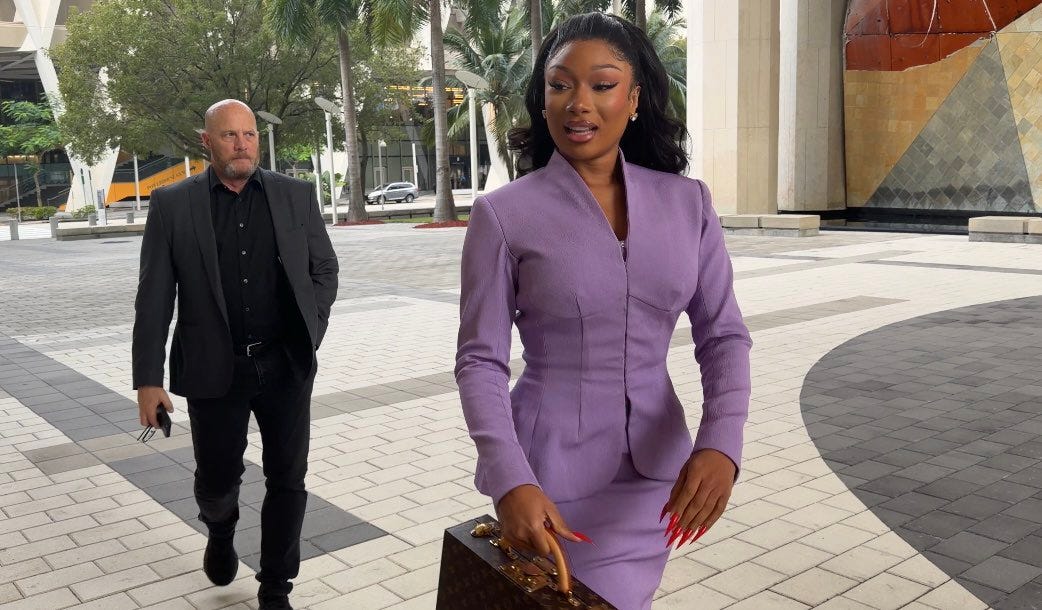Jury hears Megan Thee Stallion's assailant Tory Lanez discuss sued streamer's legal defense
Jurors also heard testimony Wednesday from a Roc Nation executive and from a renowned psychologist who said Megan has post-traumatic stress disorder.

Jurors in Megan Thee Stallion’s defamation trial on Wednesday heard Megan’s imprisoned assailant discuss defending the online commentator she’s suing during a prison call with the founder of a legal services agency.
The call between Tory Lanez, t…


